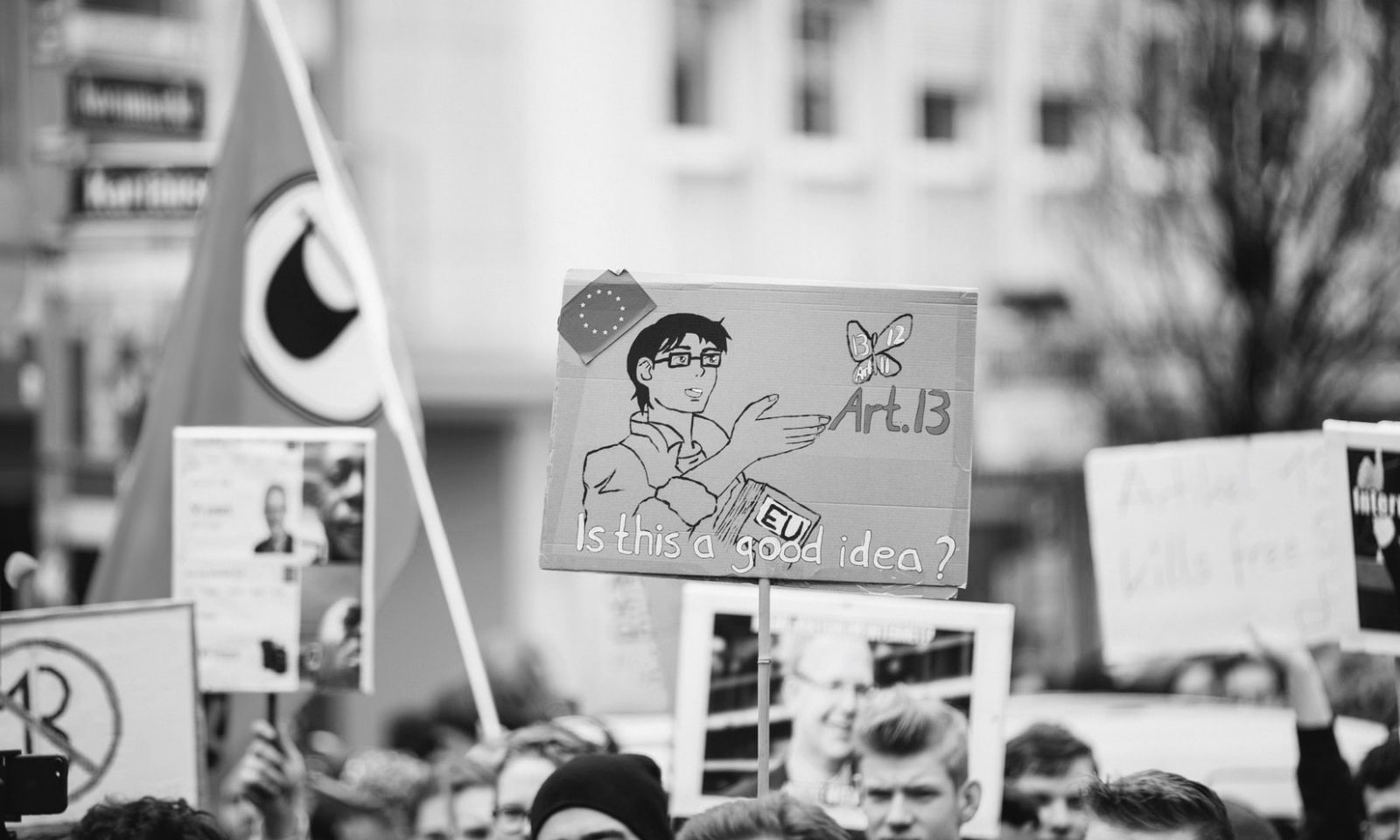Protest against the kidnapping of the internet
This Sunday, the bad weather will show how bad is the copyright reform in the EU. If you oppose how only interests of the capital (music, audio-visual and publishing industry on one side and the interests of internet giants on the other) were listened to in this process and if you demand that also the interests of the individuals – citizens and the interests of the public institutions (educational, research, libraries, archives, etc.) are considered, then take your umbrellas and come to Prešernov trg.
Internet is not only a big market for different content and services but was and should stay a place for free communication and the exchange of information as well as ideas!
The Grand Board of the European Union Intellectual Property Office (EUIPO) finally ruled that the figurative sign ‘COVIDIOT’ cannot be registered as an EU trademark.
The 4th Open Knowledge Day took place on Tuesday 17 October 2023, with an accompanying workshop on 18 October 2023. This year it was organised by the Open Data and Intellectual Property Institute (ODIPI) and supported by Knowledge Rights 21 (KR21).
We invite you to the fourth Open Knowledge Day and the workshop, which will take place this year within the framework of the programme and with the support of Knowledge Rights 21. The event will bring together experts from different European countries to discuss two topics: the first part will deal with the legal basis for data analytics, which is a key part of machine learning and related artificial intelligence, and the general exception for research. In the second part, open science in theory and practice will be presented both in Slovenia and in some Western Balkan countries. Representatives of research and educational institutions from Slovenia and the Western Balkan countries, as well as interested members of the public, are invited to attend.
Dr. Maja Bogataj Jančič, a renowned expert in copyright law, has joined the Berkman Klein Center for Internet & Society at Harvard University, where she will serve as an affiliate researcher for the next two years.





